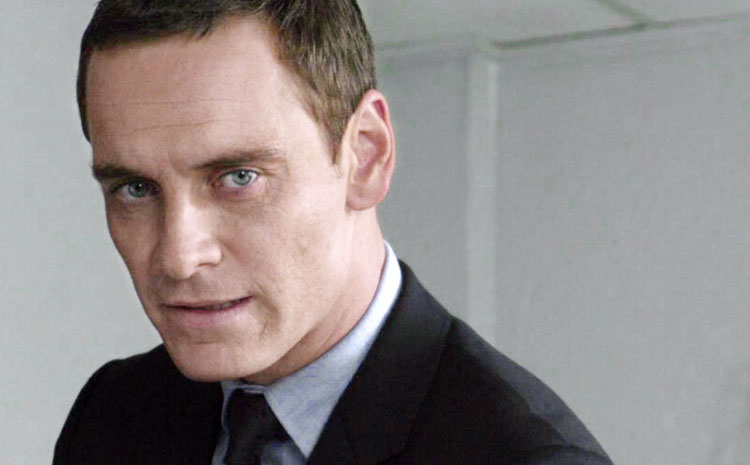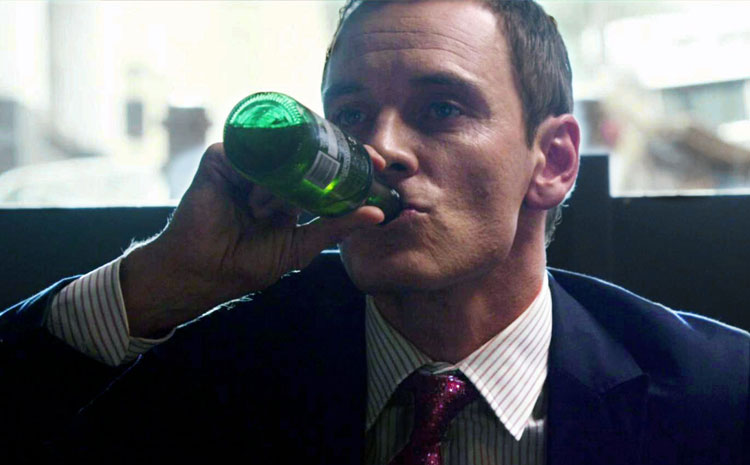
|

|

|

|

|

|

|

|

|

|

|


Q: What were your initial thoughts about this script and bringing to life one of Cormac McCarthy's protagonists?
A: It stood out when I read it, for sure. You sit up and you pay attention with Cormac's writing. I think I read it in less than hour. There's a flow to it, if you just let it go, there's a lot of information being given, but then also there's also enough of it being withheld. So you kind of fill in the blanks yourself. And then by the third act everything comes together. It was so well written, sophisticated and balanced, and while there's a lot of information there, Cormac had left enough space for an actor to fill it in. It was just a masterful piece of work. What Cormac does so well is that each action has a consequence, and once those actions are put into motion it's sort of like a domino effect, you can't stop it. It's like a runaway train at a certain point, and when The Counselor realizes that the train is on the movie there's just no way of stopping it. I loved it.
Q: The Counselor's name is not revealed, did you give him a name in your head? And why do you think Cormac McCarthy made that decision?
A: I did yeah, but that's a secret I'm not telling anyone (laughs). But I think it's just Cormac enjoying himself. I always thought there was something old school about it, about a man with no name. I think there's something interesting about the central character, people just calling him The Counselor and never having a name. I thought it was a fun thing. But I never asked Cormac why, I didn't actually ask him any questions to do with the script. I kind of figured that he's one of those guys who writes the story and is like, "It's up to you to take what you will from it." I'd say it does give The Counselor an every man quality.
Q: The Counselor's warned about the potential dangers of getting involved in this deal, but he fails to heed them. Was that hubris issue interesting to play and explore?
A: Tell me about it (laughs)! I was sitting there reading the script saying, "Listen!" For me that was a big question, I was like, "This guy can't be naive. He's a lawyer who works on the Mexican border with America, so he must be alive to this world." And especially as a defense lawyer he meets criminals all the time and defends them. But I put it down to arrogance, I figured that he thinks he's smarter than he is, and he feels like he's above whatever comeuppance is coming his way – that it would never happen to him. He thinks he's almost out of that category, he thinks he's clean and it's a simple money investment and a huge reward at the end of it.
In terms of the business we know that there's a market place for it already there, the turnover is huge, the demand is there, so for $300,000 investment he's probably going to double that. And we know that the character Toby Kebbell plays, he lets us know that he's dabbled in dirty dealings before. So he's got away with it before. He thinks he's smarter than he is. He is given enough opportunity to get out of the deal, yet he repeatedly says he's all right, and he is obviously not all right. There's a blind arrogance that drives him forward. He gets tempted to enter into a murkier sort of world, where he thinks he can make some quick cash. But there's consequences to that.
Q: That was the main thing for you to grapple character wise? And the idea of having choices is very interesting, in that people have choices, and we often make the wrong choices, which in turn have consequences...
A: Yeah, that was the main thing I had to grapple with. I thought of it like a poker game, in that he's spent too much time looking at his own hand and he's not trying to read the other players, he goes through it quite blind. So when things go wrong he's totally unprepared for it and it definitely blindsides him. But his need to have expensive things in his life, I thought there was something relevant about that in present day with how we live in a capitalist, western society. We're told that we should have all these expensive things around us, which will bring us happiness and respect from others... respectability, whatever it is. And because of that he's put himself in a dangerous position and put people around him in a dangerous position just because he has this insecurity about himself and feels like he needs to ascertain these things that will "bring him something extra".

The idea of choice is always interesting, especially in film where things are heightened. That's what drama is about, occupy someone's shoes and explore their world. I find that interesting myself and I like digging these things up, and I think most people are.
Q: And then working with Penelope Cruz as Laura, how was it working with her considering The Counselor's relationship with her character?
A: She's just a great actress. The relationship has got to be tight and the audience has to believe that these two people are madly in love with one another, otherwise the rest of the film… there would be nothing at stake. She's a top-notch actress, a real pro. Everything was there so it was very easy to respond to. She has a very primal instinct.
Something like the proposal scene, we didn't rehearse or talk too much. I remember there wasn't any speaking that day before we walked on set, and once we sat down the scene really just started to unravel. It was breathtaking to see what she was doing, it felt so raw and that instinct was so powerful and real. I felt like I was in it, I felt, "Shit, am I getting married?! I'm getting married." (Laughs) And for me that scene was so important for The Counselor because it is the one time we see him stripped of all his defenses. He disguises himself and acts like he's something he's not. So that scene is an opportunity for the audience to see him as he is: vulnerable and very much in love with Penelope's character. But for me that scene is all down to Penelope, I just had to react.
Q: And working with Ridley Scott again after "Prometheus," what was that experience like?
A: I just love working with Ridley. It's like a master class every day, it's an education. Ridley gives very clear, simple yet imaginative notes. It's fantastic to watch him work and work with each department and just see how in awe everyone is working with him. He's very mischievous and very playful, so you have the freedom to collaborate. The people that come and work on a Ridley Scott film are the best at what they do: from the lighting team, to wardrobe, to makeup, sound. You just soak it up. He's full of energy and he's a great leader. There's no bullsh*t with him, he's straight down the line.
This combination of Ridley Scott and Cormac McCarthy is too good to turn down, and it's such an unusual story. There's something new here. A lot of times we see the same thing produced and re-produced and there's the same sort of arc. We know what's going to happen to each character pretty much by page 10. This is a different beast all together.
